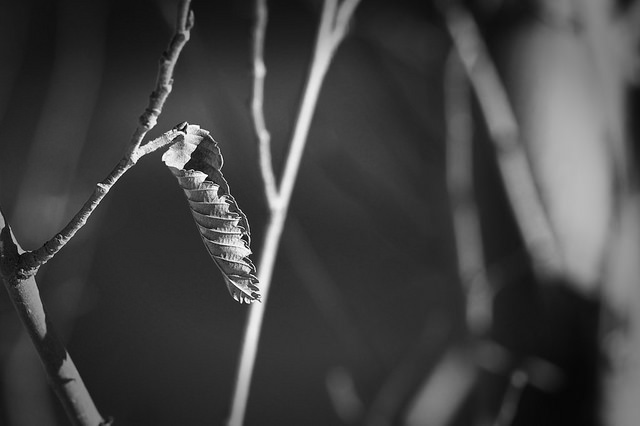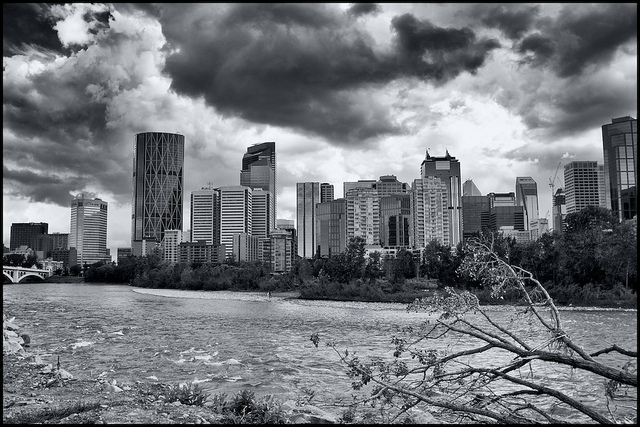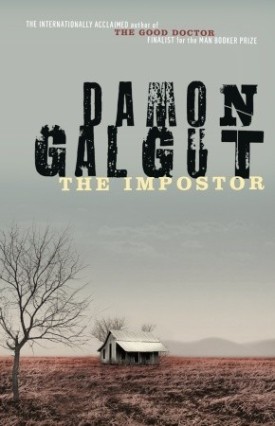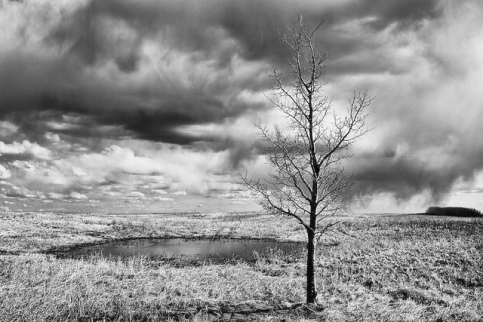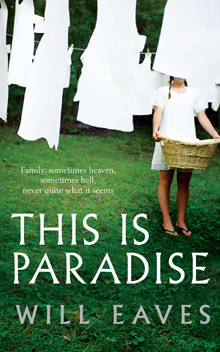I am not a conventional book blogger and, as such, I only touched on a limited selection of the 45 or so books that I read this year. Sometimes I can’t help devoting a post to a book that has grabbed me or fits into the particular flow of my life which, since June, has been waylaid by mental health concerns. I do hope that in the new year I will have more of a bookish focus but I am still likely to concentrate on musing about books that resonate with life for me at that moment. I am a firm believer that we have a kind of karmic relationship with books, that when we encounter a book that encounter is coloured by where we are at that moment in time. It might be the perfect moment. But that perfect moment might be passed or not yet come.
At this time I am particularly concerned with innovative approaches to story telling, especially stories that seek to give life to real or difficult experiences. To that end I have veered into some contemporary experimental novels, not always with entirely satisfying results. However, three novels are clear standouts, one new, one translated for the first time this year and one from a few years back. I have touched on all three to a greater or lesser extent in past posts.
My Top Three:
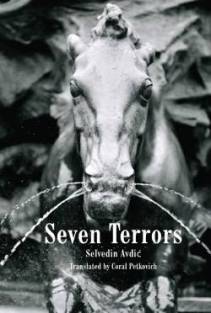 Seven Terrors, is the first novel by Bosnian writer Selvedin Avdic (Istros Books). Briefly, this is the story of a man who takes to his bed for nine months after his wife leaves him, emerging only when the daughter of a former colleague approaches him to help her find out what happened to her father who disappeared during the war. What ensues is on one level a detective story into which come elements of Bosnian folklore, politics, criminal interests and an increasing sense of madness. The Balkan war is only approached obliquely, primarily in the accompanying end notes. The overriding theme is one of the damage, collective and individual, that the horror has left in its wake. The book concludes with musings about, terror, philosophy and Bosnian mythology, followed by seven blank pages for the reader to use to record his or her own fears. I read this book back in February and it has continued to haunt me all year.
Seven Terrors, is the first novel by Bosnian writer Selvedin Avdic (Istros Books). Briefly, this is the story of a man who takes to his bed for nine months after his wife leaves him, emerging only when the daughter of a former colleague approaches him to help her find out what happened to her father who disappeared during the war. What ensues is on one level a detective story into which come elements of Bosnian folklore, politics, criminal interests and an increasing sense of madness. The Balkan war is only approached obliquely, primarily in the accompanying end notes. The overriding theme is one of the damage, collective and individual, that the horror has left in its wake. The book concludes with musings about, terror, philosophy and Bosnian mythology, followed by seven blank pages for the reader to use to record his or her own fears. I read this book back in February and it has continued to haunt me all year.
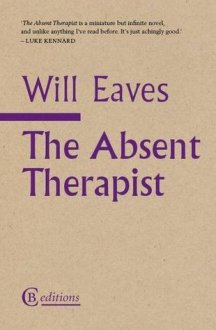 The Absent Therapist by Will Eaves (CB Editions), a recently encountered treasure, is an inventive juxtaposition of the mundane everyday snippets of conversation, remembrances and idle thoughts, against the extraordinary musings and reflections about the nature of human existence. There is no singular voice, no story arc, no solid ground. But in this collection of fragments there lies the essence of a rich and deeply human experience, at once stripped down and laid bare as they are collected and made whole.
The Absent Therapist by Will Eaves (CB Editions), a recently encountered treasure, is an inventive juxtaposition of the mundane everyday snippets of conversation, remembrances and idle thoughts, against the extraordinary musings and reflections about the nature of human existence. There is no singular voice, no story arc, no solid ground. But in this collection of fragments there lies the essence of a rich and deeply human experience, at once stripped down and laid bare as they are collected and made whole.

In a Strange Room by Damon Galgut (McClelland & Stewart), has been out for four years but I came to it this year, most specifically because I wanted to see how a personal experience could be pared down to its essentials and explored through the lens of time and memory. The result is some of the most evocative and precise writing about what it means to be grounded in ones self and in relation to others (or not); the allure of the road and the ambiguity of home; and, most vividly, the way that all truth lived is a fiction – one that is necessarily subjective. Galgut is quickly becoming one of my favourite authors and the opportunity to meet him and engage in an encouraging conversation about writing was the highlight of our local writer’s festival for me this fall.
Other books that had a particular impact on me this year included:
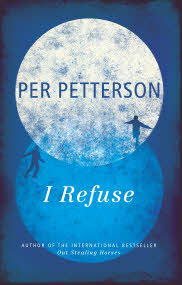 I Refuse by Per Petterson. Recently translated, this latest book by another of my favourite writers is darker, richer and more complex than his masterful Out Stealing Horses. This book explores the memories of youth, the mystery and pain of mental illness, and the re-evaluations that mark mid-life. Like life, there are no neat, easy resolutions. I discussed this book in a recent post.
I Refuse by Per Petterson. Recently translated, this latest book by another of my favourite writers is darker, richer and more complex than his masterful Out Stealing Horses. This book explores the memories of youth, the mystery and pain of mental illness, and the re-evaluations that mark mid-life. Like life, there are no neat, easy resolutions. I discussed this book in a recent post.

Train to Pakistan by Khushwant Singh. This was a recommendation from a regular poster on the brilliant Tips, Links and Suggestions (TLS) blog of the Guardian Books website, a must stop for any avid reader who likes to talk about books, reading and that endless TBR list. I had never heard about this classic tale of the brutal fallout following partition in India in 1947 as communities were dismantled and muslims relocated north to Pakistan, hindus south to Gujarat. Countless men women and children failed to make it across the border alive. I am ashamed that it took the death of the author just shy of his 100th birthday to bring this brilliant book to my attention and all I can say is, if you have not done so, read it. It is important, deeply moving and the last few pages are the most agonizingly intense you will ever read. Enough said.
 Barracuda by Christos Tsiolkas. Honestly this is a book totally outside my comfort zone, I just am not inclined to huge sprawling dramas that take on all of the big issues of class, race, family, love, sex, death, success, failure etc, etc and clock in over 500 pages. Give me spare novels with lots of space for unresolved tension and moral ambiguity, thank you. So I was blindsided by how much I loved this book. It was, in part, a book I needed to read at the time, as I was coping with shame, desire for redemption and loss of identity following my breakdown earlier this year and uncertainty around my ability to return to a career I loved. It is also a skillfully crafted, fast moving and intensely powerful novel on every count. And it contains the best descriptions of brain injury in adults that I have ever seen in literature – the main character has a brain injured cousin and goes on to find in himself (though he fails to fully appreciate it) a gift for working with the disabled. Tsiolkas was another author I was fortunate to see interviewed live and speak to at length. I found him to be absolutely passionate about reading and writing and extremely kind and generous with his time and enthusiasm.
Barracuda by Christos Tsiolkas. Honestly this is a book totally outside my comfort zone, I just am not inclined to huge sprawling dramas that take on all of the big issues of class, race, family, love, sex, death, success, failure etc, etc and clock in over 500 pages. Give me spare novels with lots of space for unresolved tension and moral ambiguity, thank you. So I was blindsided by how much I loved this book. It was, in part, a book I needed to read at the time, as I was coping with shame, desire for redemption and loss of identity following my breakdown earlier this year and uncertainty around my ability to return to a career I loved. It is also a skillfully crafted, fast moving and intensely powerful novel on every count. And it contains the best descriptions of brain injury in adults that I have ever seen in literature – the main character has a brain injured cousin and goes on to find in himself (though he fails to fully appreciate it) a gift for working with the disabled. Tsiolkas was another author I was fortunate to see interviewed live and speak to at length. I found him to be absolutely passionate about reading and writing and extremely kind and generous with his time and enthusiasm.
There were many other novels I enjoyed and more than a few that were mediocre at best.
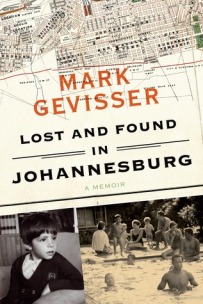 In non-fiction, I only read a handful of titles, but my favourite was Lost and Found in Johannesburg by Mark Gevisser. The author came to my attention as the result of his recent article in Granta previewing his current involvement in a global survey of sexuality and gender diversity and, although these interests are also reflected in this memoir, the book is a fascinating family history tracing his Jewish ancestors back to Lithuania, recounting his upbringing in a segregated South Africa and his discovery through a childhood obsession with maps that there were places in his own city seemingly inaccessible. Communities, he would discover, that black people emerged from and returned to each day, often very close but in another reality altogether. He takes the reader on a journey back in time to the activists who challenged the colour barrier early on (a nice dovetail with my reading of Nadine Gordimer’s Burger’s Daughter this year), on a tour of the black communities as they exist today, and through the vivid horror of being held at gunpoint for three hours as he and two female friends were the victims of a home invasion in early 2012. It paints a stark and yet loving portrait of a difficult city.
In non-fiction, I only read a handful of titles, but my favourite was Lost and Found in Johannesburg by Mark Gevisser. The author came to my attention as the result of his recent article in Granta previewing his current involvement in a global survey of sexuality and gender diversity and, although these interests are also reflected in this memoir, the book is a fascinating family history tracing his Jewish ancestors back to Lithuania, recounting his upbringing in a segregated South Africa and his discovery through a childhood obsession with maps that there were places in his own city seemingly inaccessible. Communities, he would discover, that black people emerged from and returned to each day, often very close but in another reality altogether. He takes the reader on a journey back in time to the activists who challenged the colour barrier early on (a nice dovetail with my reading of Nadine Gordimer’s Burger’s Daughter this year), on a tour of the black communities as they exist today, and through the vivid horror of being held at gunpoint for three hours as he and two female friends were the victims of a home invasion in early 2012. It paints a stark and yet loving portrait of a difficult city.
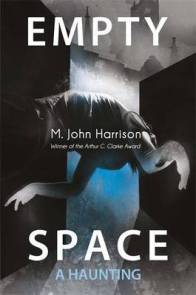 Finally, my guilty pleasure is science fiction, generally veering to the weird. I regularly read J G Ballard and I did read Jeff VanderMeer’s acclaimed Southern Reach Trilogy this year and although I loved the first two books, the third seemed to try to resolve things in a most awkward and unsatisfying way for me. So my pick of the year was also my first read of 2014, the last installment of M John Harrison’s Kefahuchi Tract trilogy, Empty Space. It was just as haunting and grotesque as one could want, assuming one wants such an experience. But for me Harrison is in a league of his own and I am even enough of a geek fan to have purchased single story chapbook signed by the man himself this year. So there.
Finally, my guilty pleasure is science fiction, generally veering to the weird. I regularly read J G Ballard and I did read Jeff VanderMeer’s acclaimed Southern Reach Trilogy this year and although I loved the first two books, the third seemed to try to resolve things in a most awkward and unsatisfying way for me. So my pick of the year was also my first read of 2014, the last installment of M John Harrison’s Kefahuchi Tract trilogy, Empty Space. It was just as haunting and grotesque as one could want, assuming one wants such an experience. But for me Harrison is in a league of his own and I am even enough of a geek fan to have purchased single story chapbook signed by the man himself this year. So there.
I may finish a few more books before the year is out but this is the longest post I have written to date, so I will stop here.
Happy reading in 2015.
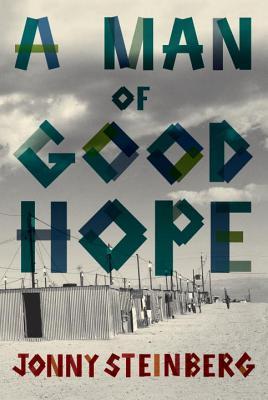 Against this context, a review in The Observer drew my attention to A Man of Good Hope, a new book by South African writer Jonny Steinberg. In my work I encountered and supported many young men from the troubled Horn of Africa, but the depth and complexity of the political and human realities that have been endured by many of the refugees who ultimately make their way to our shores are far beyond my imagining from my safe space. However, I was not quite prepared for just how difficult that journey can be.
Against this context, a review in The Observer drew my attention to A Man of Good Hope, a new book by South African writer Jonny Steinberg. In my work I encountered and supported many young men from the troubled Horn of Africa, but the depth and complexity of the political and human realities that have been endured by many of the refugees who ultimately make their way to our shores are far beyond my imagining from my safe space. However, I was not quite prepared for just how difficult that journey can be.
